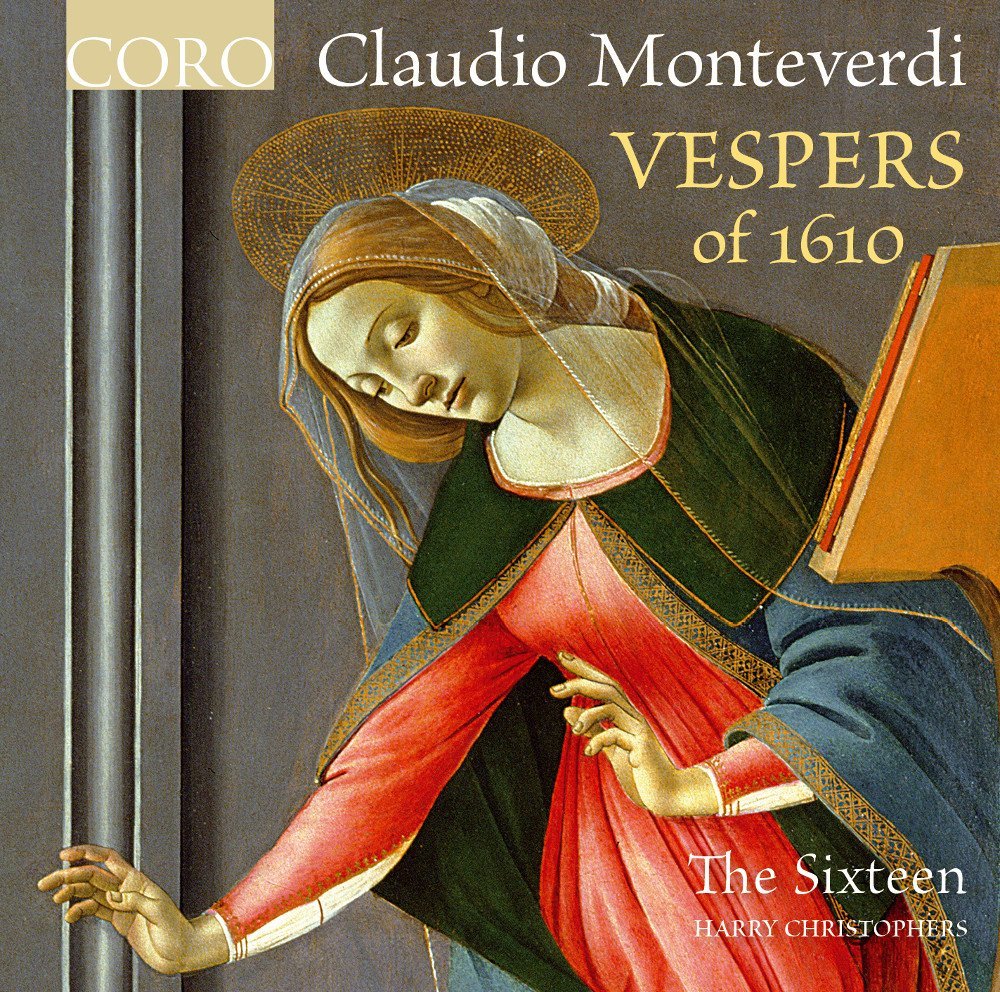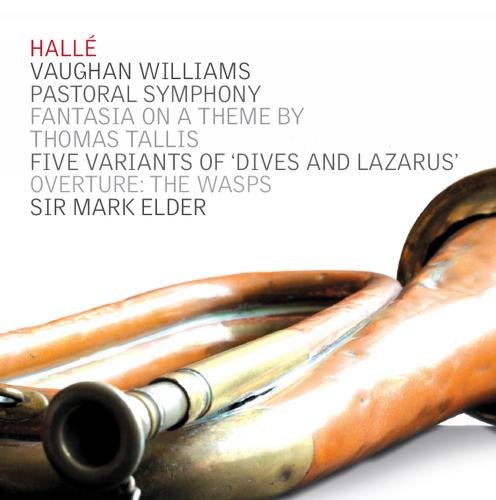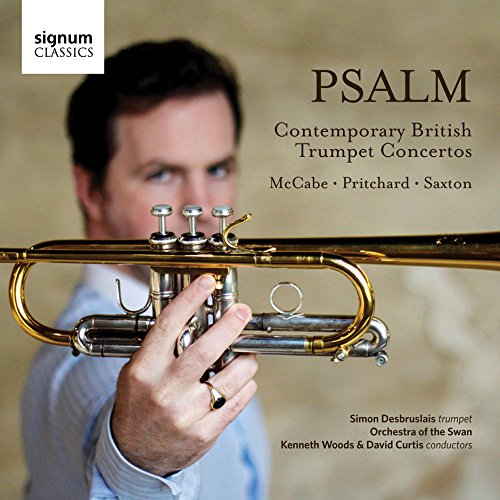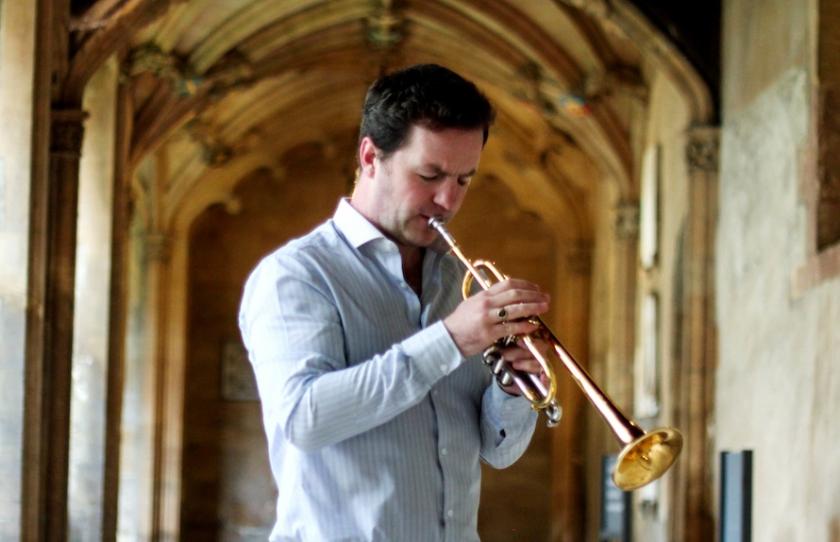
The first few minutes of Monteverdi's Vespers are a knockout. Rarely has one sustained chord been so fruitfully deployed, and the big plagal cadence at the end is wonderful. Heard live, in a big, reverberant space, the Deus in adiutorium is invariably thrilling, no matter how much detail gets lost. David Nice reviewed a recent live performance by Harry Christophers and The Sixteen in Winchester Cathedral, but their second recording was taped in the more congenial surroundings of St Augustine's, Kilburn, and acoustically it's glorious. There's an abundance of detail in the warm sound and the bigger climaxes have ample presence. Christophers effortlessly knits Monteverdi's eclectic sequence of short movements into a coherent whole. Moving from extravagant brassy polyphony to solo arias with sparse accompaniment, you're always aware of one composer's voice.
Tenor Mark Dobell's brief "Nigra sum", backed by David Miller's chittarone, is among the best of the intimate numbers. The "Sonata sopra Sancta Maria" and "Ave maris Stella" which conclude the first disc sum up all that's good about this performance – matchless, bright-toned choral singing and perky instrumental support. There's some debate about the proper pitch of the Magnificat which completes the Vespers, so Christophers gives us contrasting high and low versions. Both sound splendid, though the lower of the two is warmer and more sonorous. Excellent presentation – nice artwork, an interesting sleeve note, and full texts provided. Everyone should own at least one recording of this work, so why not begin here?
This is a quietly spectacular disc, and a near-perfect Vaughan Williams anthology. So much of this music shouldn't work. Don't turn to this repertoire if you're looking for a quick adrenalin rush, or a dose of Stravinskian orchestral glitter. Still, in the right hands, Vaughan Williams's music can be oddly affecting. Sir Mark Elder's mitts are up the job, and there's not a dud performance here. The Hallé strings sound terrific in the Tallis Fantasia, and I like the subtle emphasis which Elder gives to the main theme's bass line in the opening statement. It's a shrewdly prepared performance which manages to sound pretty spontaneous. The huge crescendo three minutes in is electrifying, as are the eerie quiet passages where soft, vibrato-free strings sound like a viol consort. Antiphonal effects are well-caught by producer Andrew Keener. Vaughan Williams's early encounter with the folk song Dives and Lazarus had a profound effect on his artistic development. The Five Variants on the tune, composed, incongruously, for the 1939 New York World Fair are beautiful stuff, but lack the Tallis Fantasia's otherworldliness.
Vaughan Williams's Pastoral Symphony was a response to World War I, evoking a rural landscape defiled by conflict. Elder's reading carries a potent emotional charge, and the Lento moderato's trumpet solo is chilling. Soprano Sarah Fox sounds ideally distant in the finale, and the equivocal ending is sublime. The late Michael Kennedy's notes are excellent, suggesting that the music's bleakness reflected the composer's despair at having lost friends and contemporaries. This predominantly slow-moving, ruminative symphony is compelling in this performance; it's amusing to read that the work's stately unfolding was justified by Vaughan Williams in the following terms: “I've conducted it several times... and it's not as boring as I feared.” A sharp, exuberant rendition of The Wasps overture closes the disc.
John McCabe died earlier this month. He was a polymath – teacher, pianist and composer, and one of those rare musicians about whom it's hard to find a cross word. He's represented on this compilation of modern trumpet concertos by La Primevera, a concise three-movement work written in 2012. Spring's “exuberance and vitality” are reflected in music of infectious energy and spikiness, and the outer movements' bright, transparent scoring allow the solo line to soar. It was composed for the brilliant Simon Desbruslais, who switches to a flugelhorn for the central Andante. McCabe, like Hindemith, knew how to write idiomatically for every instrument, and the trumpet writing, however fiendish, is always highly idiomatic. Even trickier to perform are two concertante works by Robert Saxton. Psalm: A Song of Ascent takes its inspiration from Biblical references to the trumpet. Desbruslais is, in Saxton's words, “a Priest-like Master of Ceremonies”, leading an orchestral congregation through a sermon taking in lament, rejoicing and all points in between. More immediately engaging is Saxton's 2013 Shakespeare Scenes; five brief, intense movements. We hear Falstaff waking from deep sleep, and a terrifically vivid portrayal of Lear and his Fool. Saxton's less abrasive style glances backwards without descending into pastiche.
Deborah Pritchard's Skyspace is scored for piccolo trumpet and small orchestra. The work is described as a musical response to the sky's changing colours, though it's never prosaic or ploddingly literal. The pleasures come in listening to Pritchard's cannily shaded, continually shifting orchestral textures, providing luminous backing to the stratospheric solo writing. A fascinating, enjoyable CD. Kenneth Woods and David Curtis share conducting duties, and the Orchestra of the Swan provide confident, lively backing.















Add comment